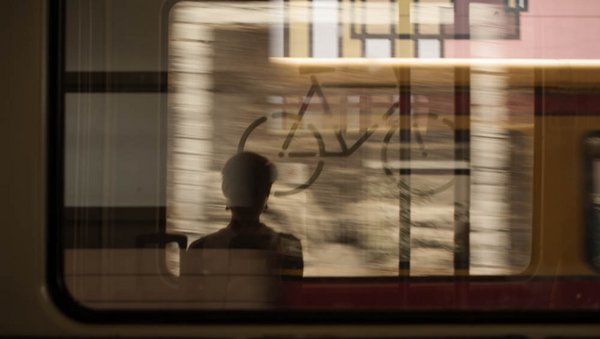Abroad in Mainz: Emily meets Weltanschauung and a new love
I left America and registered for a master’s degree in Mainz without ever having set foot in Rheinland-Pfalz. When I arrived in Mainz, I knew practically nothing about the city, except that it was on the Rhine and that it had really good wine.
It was a strange feeling, signing up to spend two years of my life in a place I had never seen. It took me most of my first year in Germany to stop feeling like a stranger. Growing into things was certainly a learning experience, and I made (and still make!) any number of stupid mistakes. I’ve been cursed out by my fair share of bikers for walking in the bike lane, have gotten on more than a few busses going to places I didn’t want to go to, have spent several months trying to figure out exactly how many German words there are for reciept (Zettel, Rechnung, Beleg, Rezept). Complicated, that.
But it all worked out in the end, and somewhere along the way of learning the logistics of living in a German city, I’ve fallen in love with the place itself-with Mainz, with the people, the stories, the Weltanschauung.
Abroad in Mainz
When Campus Mainz asked me to write a column about living and studying in Mainz from an outside perspective, I was thrilled. For me, it’s the opportunity to continue exploring the idea of abroad, now after a year of living in Mainz. Plus, it gives me the chance to write a public love-letter to a city I have come to deeply care about over the past year, and a place to gather things I wish I had known when I moved to Mainz sight-unseen-a chance, perhaps, to give something back, to help others learn to feel comfortable in Mainz as so many others have helped me. I’m excited to be here.
Telling Stories
For me, writing about my experiences was, and still is, a vital part of learning to feel at home in Mainz. I started blogging regularly after my arrival in Germany under the name Emily Abroad-Emily in a foreign country, Emily in a city she had never seen before.
In the end, after thirteen months in Mainz and some sixty blog posts, I don’t feel like a visitor any more. I know where the most convenient food stores are and how to find the most beautiful walking paths, and I give directions to tourists. I have a job and some sort of social life, and I go to classes and debate tragedy and existentialism in Hamlet along with everyone else. I know all the words to the Fastnacht songs and, on a good day, even let slip a little dialect. It’s good to be here.
At the same time, though, I’m still very much abroad. When I arrived in Mainz all I wanted to do was to blend in, to lose my American accent and reach the point where I could “pass” as German as fast as possible. Now, though, I’m not sure I want to do that anymore. When people say, “I thought you were from Austria!” or “I thought you just had a strong dialect!” it’s incredibly flattering. At the same time, however, it’s strangely disturbing–do I really want to lose that part of my identity that publicly marks me as not German? If I can pass as 100% German, do I stop being American somehow? In the end, I like being Emily Abroad, and that identity is now just as much a part of my existence as my feminism or my belief in the power of beauty.
Going home?
But when do I stop being someone who is living abroad? When is abroad not abroad any more?
I’ve thought about the title of my blog, and what will happen after I (most likely) return to America at the end of my masters’ degree, one year from now. In the end, I have a feeling that when I move back to the States the name “Emily Abroad” will still fit, because America will have become, just slightly, a sort of abroad for me. After you’ve invested so much in another place, after you’ve fallen in love with a language and a people and a country, can you ever really go back? And isn’t this perspective of difference a very good thing?
Campus Mainz e.V. unterstützen!
Campus Mainz e.V. ist ein gemeinnütziger Verein und die meiste Arbeit ist ehrenamtlich. Hilf uns dabei auch in Zukunft tolle Dienste für alle kostenlos anzubieten. Unterstütze uns jetzt!







